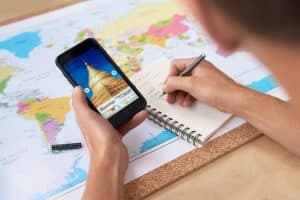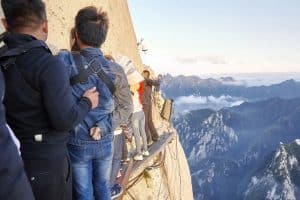- TRAVEL GUIDES
arrow_drop_down
- Canada
- United States
- Sunny Destinations
arrow_drop_down
- VIEW ALL
- BUCKET LIST
- ABOUT
- CONTACT
Think You Know the USA? 31 Weird But True Facts You Didn’t Know
- Travel
-
Jul 29
- Share post
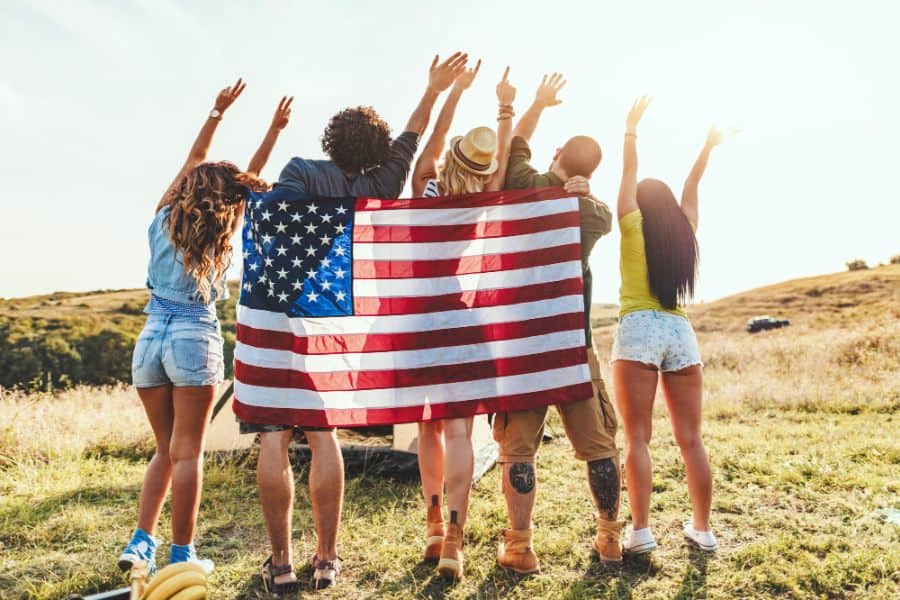
Thought you knew all there is to know about the USA? Our country is brimming with quirky secrets and odd facts that might just make your jaw drop.
Stick with us as we reveal the weirdest but true facts about the USA that will surely give you something to talk about at your next gathering!
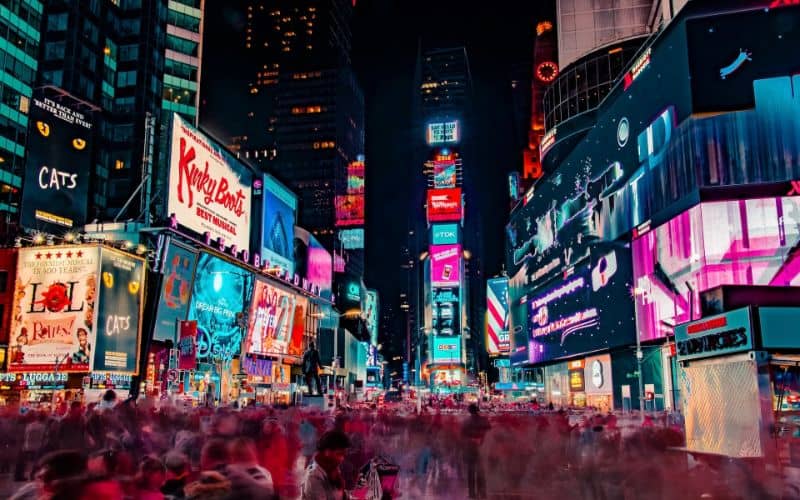
1. New York City Population
Can you believe that more people live in the bustling New York City than in 40 of the 50 states? With over 8.5 million residents, it’s a giant among cities. Each crowded subway train and lively street corner is a small reminder of this massive human mosaic.
2. State Animal of California
You might be surprised to find out that the majestic grizzly bear is California’s official state animal. It’s a bit of a twist, though—there haven’t been any wild grizzly bears spotted in California since 1922.
That’s right, for almost a century, these iconic symbols of strength and endurance have been absent from the Golden State’s landscapes!
3. Fastest-Speaking State
Oregon is the fastest-speaking state in the U.S. Chatting in Oregon might feel like trying to keep up with a sprinter in a marathon! It’s true, Oregonians have the quickest banter in America, zipping through words at an eye-popping pace.
4. USA at War
Would you believe that the U.S. has been at war for almost its entire history? Since declaring independence in 1776, the country has seen conflict in most of its calendar years.
In fact, a fascinating statistic is that America has been at war about 93% of the time—that’s a staggering 222 out of 239 years up to 2018.
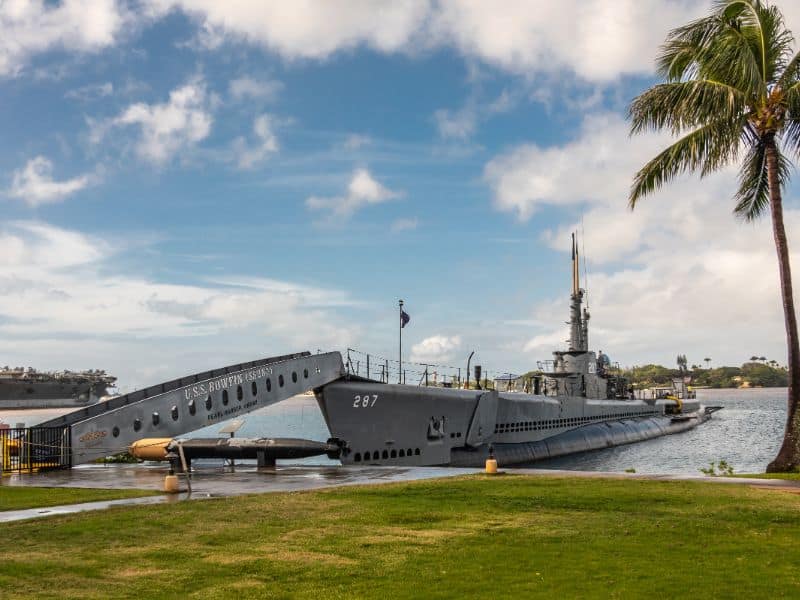
5. America’s Population Growth
Since 1776, America’s population has grown from 2.5 million to 314 million. America’s population has truly skyrocketed, and you’re part of this amazing story!
6. Belief in Jesus’ Return
In 1844, Americans sold all of their stuff because they believed Jesus was coming back. This wasn’t just a handful of the hopeful; thousands of people were caught up in this fervor.
They were following a man named William Miller, who had a vision that Jesus’ return was imminent. Yet, morning came, and life went on as usual, leading to what is known today as the Great Disappointment.
7. Treetop Squirrel Bridges
In the charming town of Longview, Washington, you’ll find something quite unusual: bridges designed just for squirrels! These unique structures stretch above busy streets, providing a safe pathway for squirrels amid the urban landscape.
8. Montana’s Cows and People Ratio
Montana has three times as many cows as it does people. With a sky so big and pastures sprawling, it’s no wonder more cows than people call this state home!
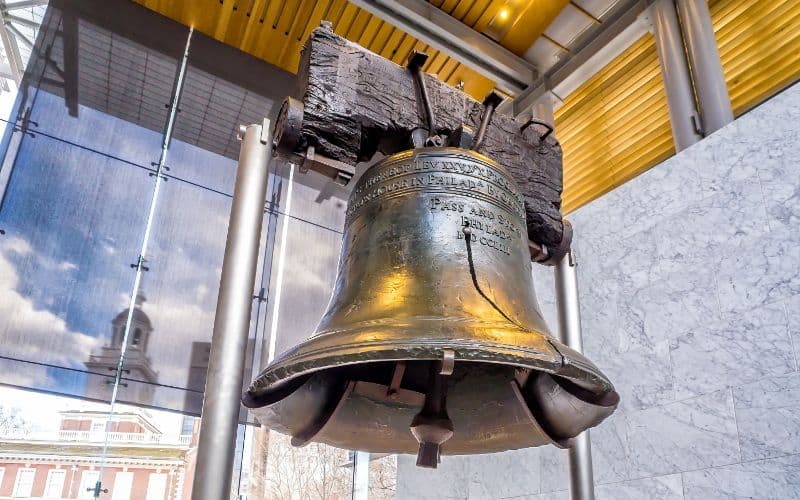
9. Liberty Bell
The Liberty Bell is a symbolic piece of American independence that can still be visited. Cast in London and enduring a crack during a test strike, it’s a tale of resilience. Its inscribed message, “Proclaim Liberty Throughout All the Land Unto All the Inhabitants thereof,” rings loud.
10. GPS Ownership & Control
Did you know that the GPS system you use every day is actually owned by the U.S. government? And while it’s always there to guide you to your favorite coffee shop or navigate a road trip, the American government holds the power to turn it off whenever necessary.
11. Proposed Country Renaming
In 1893, US Representative Lucas Miller from Wisconsin proposed renaming the USA to the “United States of Earth,” envisioning a future where the US would encompass the entire world. This ambitious idea reflects an early concept of globalization. Discover more about this historical proposal here.
12. Skyscraper with No Windows
In the heart of New York City, there’s a skyscraper that stands out—or rather, doesn’t stand out because it has no windows! 33 Thomas Street is a massive building towering above the streets with a solid facade.
Originally built for AT&T, this skyscraper acts as a telecommunications hub, packed with equipment instead of offices. It’s designed to be super-strong, rumored to withstand all sorts of disasters, from storms to maybe even a nuclear fallout.
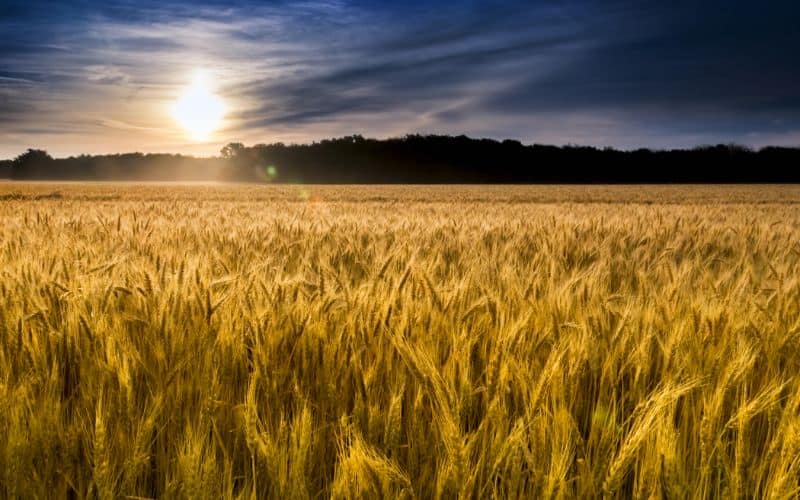
13. Kansas Wheat Production
Kansas produces enough wheat each year to feed everyone in the world for about two weeks. Just one bushel from this heartland state turns into a million kernels. That’s a lot of bread!
14. Purchasing Alaska From Russia
The United States purchased Alaska from Russia in 1867 for $7.2 million, amounting to roughly two cents per acre, a nominal amount considering the territory’s size and resources! This purchase significantly increased the nation’s land area.
15. Licensed Bartender President
Did you know that before he was leading the country through its most tumultuous times, Abraham Lincoln was mixing up drinks? After his stint in the Black Hawk War, Lincoln began his entrepreneurial journey with William Berry.
Together, they acquired a general store in New Salem, Illinois, which included a license to pour beverages for the locals. This little-known slice of history reveals Lincoln’s humble beginnings and his early connection with everyday Americans.
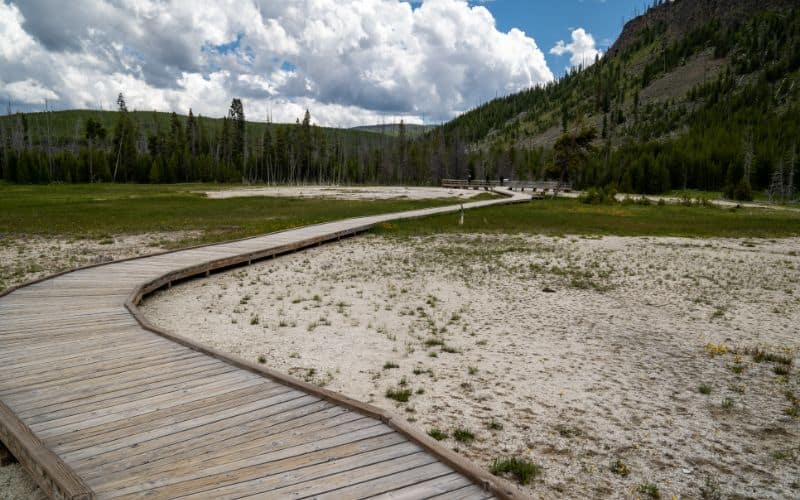
16. Volcano That Could Destroy the USA
Yellowstone National Park is located above a supervolcano with a large magma chamber, capable of producing catastrophic eruptions which could change life as we know it.
The supervolcano has had three major eruptions, but these are separated by millions of years, and current scientific monitoring suggests no imminent threat. The park continues to be a site of geothermal wonders and a testament to Earth’s geological power.
17. The U.S. Shoreline
You might find this hard to believe, but the coastline wrapping around the United States is longer than China’s! The official measurement puts the U.S. shoreline at an incredible 95,471 miles. That’s quite the stretch and includes all sorts of beaches, cliffs, and rocky shores.
18. Museum of Counterfeit Money
Have you ever seen money that’s not quite right? In Washington D.C., there’s a unique museum where the cash on display is all fake! This isn’t your everyday Monopoly money; we’re talking about top-notch trickery that almost fooled the nation.
Each bill tells a story of would-be thieves and their sly attempts to outsmart the government. It’s a fascinating peek into the shadowy world of forgeries, right in the heart of our capital.
19. College Sports Popularity
Ever felt the electric buzz at a college sports game? In many regions of the United States, college sports are as popular as professional sports. Nothing beats the thrilling atmosphere of a college stadium where the young athletes put on a show that rivals the pros.
20. United States’ Official Language
You might be surprised to learn that, despite English being the most commonly spoken language of the U.S., there’s actually no official language set by the federal government.
Even with English as the go-to for most people, the U.S. welcomes a rich variety of languages from coast to coast. It goes to show just how diverse our nation is.
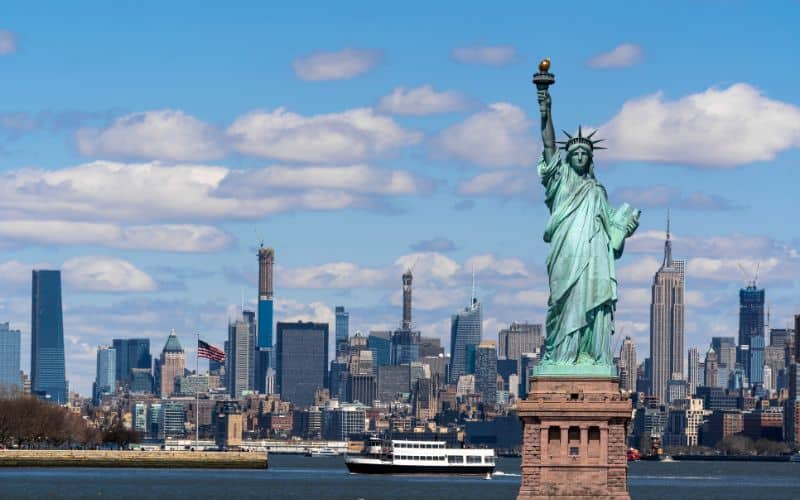
21. The Statue Of Liberty Was a Gift
The Statue of Liberty, a recognized symbol of freedom, was gifted to the United States by France in 1886.
Designed by Frédéric Auguste Bartholdi with an iron framework by Gustave Eiffel, it represents the strong historical ties between the two nations and has welcomed immigrants arriving in America for generations.
22. First National Park
In 1872, President Ulysses S. Grant established Yellowstone as the first national park in the world, setting a precedent for the conservation of natural areas. This park is renowned for its geothermal features, such as Old Faithful, and its diverse wildlife, serving as a prototype for national parks worldwide.
23. Stand in Four States at Once
The Four Corners Monument marks the point where Arizona, Colorado, New Mexico, and Utah meet, allowing visitors to be in four states simultaneously.
Managed by the Navajo Nation, this location offers a unique experience and cultural significance. The joy of saying “I’m in four places at once!” is a quirky bucket-list bragging right, pure and simple.
24. Largest Office Building
The Pentagon, located in Virginia, is the largest office building in the world by floor area, with a complex network of corridors totaling 17.5 miles in length and housing numerous military employees across its five floors. You could get your daily steps in more than twice without even leaving the building!
25. The Hoover Dam Had a Different Name
Did you know that the mighty Hoover Dam used to have a different name? That’s right, it was originally called Boulder Dam and is recognized as one of the Seven Wonders of the Industrial World.
This engineering feat, located on the Nevada-Arizona border, is notable for its massive size and its role in controlling the Colorado River and creating Lake Mead.

26. The U.S. Flag Has Been Changed 27 Times
Did you know the stars on our flag have a story to tell? Each time a new state joined the union, a star found its way onto the flag. They aren’t just any stars, though—they’re symbols of each state’s inclusion in this grand country.
The United States’ banner has seen 27 different versions, and the 50-star flag we see today debuted on July 4, 1960, shortly after Hawaii was welcomed as the 50th state.
27. Most Diverse Climate on Earth
Ever felt a snowflake dissolve on your tongue or the warm embrace of the sun at the beach? With a patchwork of climates stitched across the country, you can shiver in Alaska’s icy tundra or get your shades out in the sunny stretches of California.
The East often features humid conditions, while the West includes arid desert regions.
28. Largest Economy in the World
Did you know that you are living in the country with the biggest economy on the globe? According to the Commerce Department, in the early part of 2024, the U.S. economy experienced a growth rate of 1.6%. This growth indicates a steady economic performance, avoiding recession.
29. Fourth Longest River System in the World
Did you know that right in America’s heartland, the Mississippi and Missouri Rivers combine to form the fourth longest river system in the world? This water stretch travels more than just miles—it connects states, cultures, and histories, making it a true natural wonder.
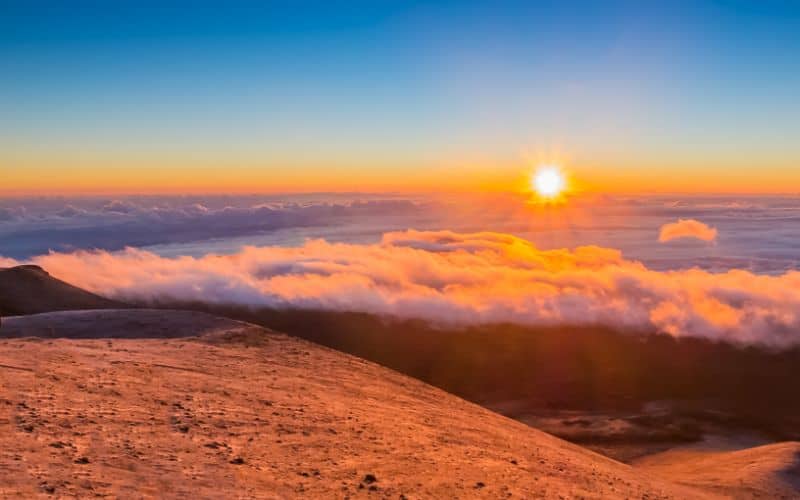
30. Tallest Mountain in the World
Did you know the true giant isn’t Everest but Mauna Kea in Hawaii? When you measure from base to peak, Mauna Kea towers over Everest with its massive underwater bulk.
Mauna Kea starts from the ocean floor and stretches up 33,500 feet, with 13,803 feet above the waves. So, in a surprising twist, America is home to the world’s tallest mountain!
31. The Mall Of America is Massive
The Mall of America in Minnesota is so big that it can hold 24,336 school buses! With room to spare, the mall isn’t just about shopping—it’s a monument to scale that turns a simple mall visit into an expedition. The enormity of this place needs to be seen to be believed!
Final Thoughts
After unlocking the USA’s weirdest facts, are you brave enough to veer off the beaten path? If uncovering America’s strangest secrets left you hungering for more, get ready to unveil some truly jaw-dropping hidden travel gems!

